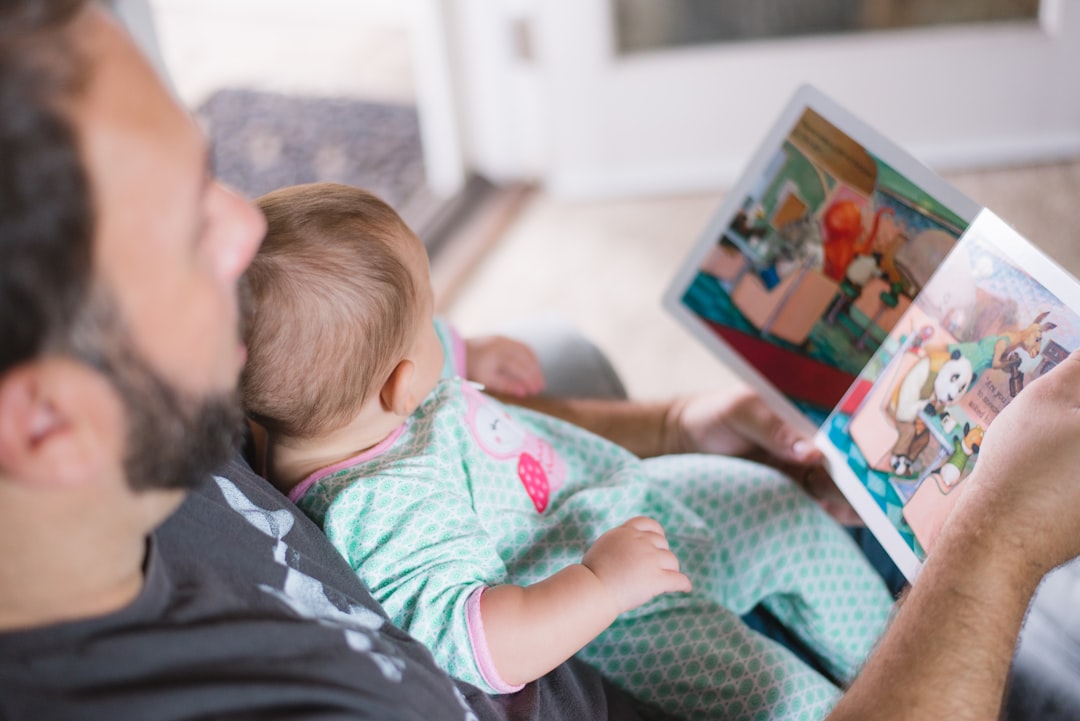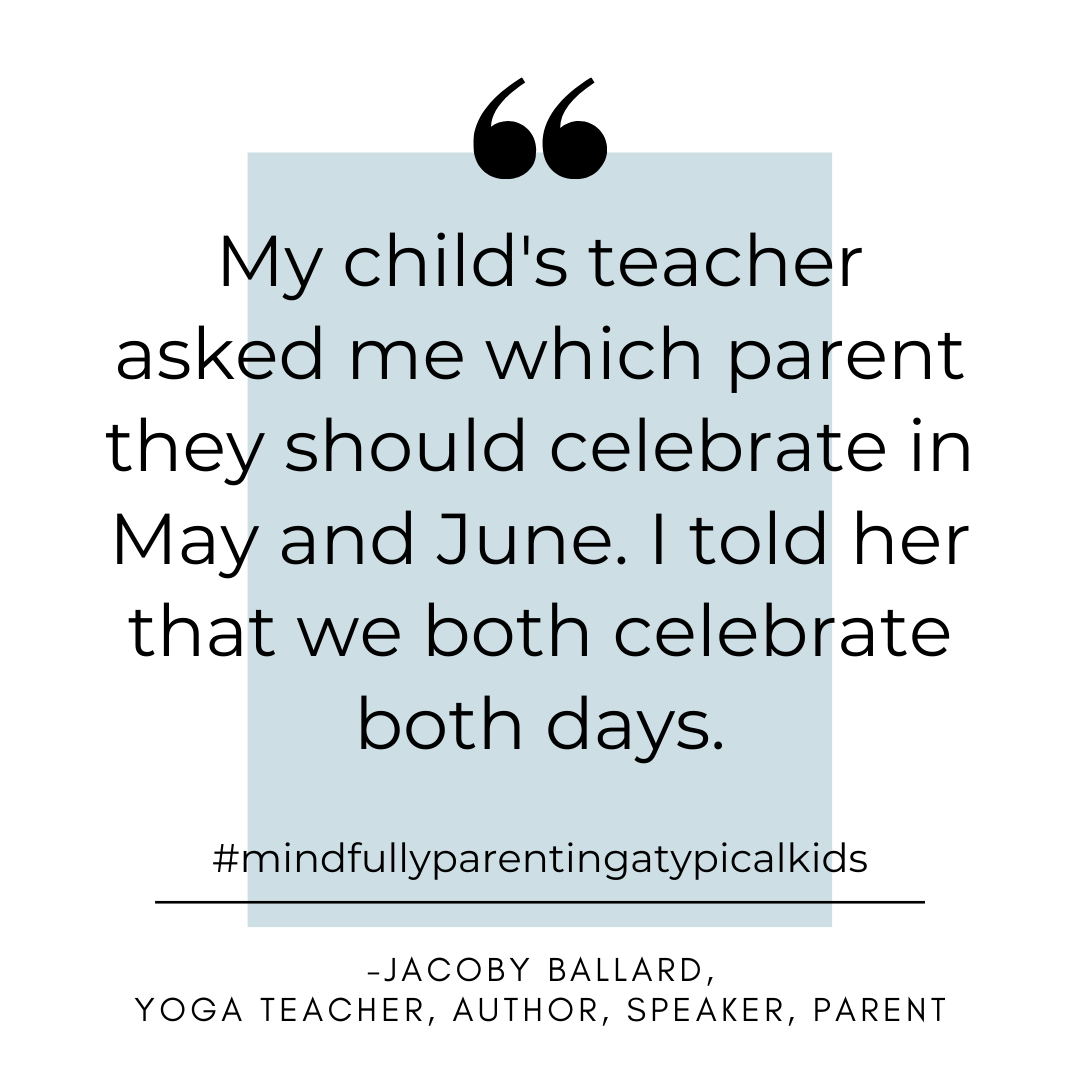For a More Inclusive Future This Father's Day, Let's Smash the Patriarchy
Our patriarchal culture creates an oppressive parenting binary, but we can reshape it by redefining our relationships.
Happy Father’s Day!
I wrote a version of this post a year ago, and have edited it a bit. We had all just had Covid. A lot of terrible things were happening in our country then, and still are.
There are currently over 520 anti-LGBTQIA+ bills that have been introduced in state legislatures. Our patriarchal culture creates an oppressive parenting binary, but we can reshape it by redefining our relationships. If we want inspiration to redefine our parenting roles and live our truth, we can look to LGBTQIA+ parents living outside the binary. I’m still asking: Can we create more family harmony, and heal our oppressive culture, by supporting caregiver equity?
June 16, 2022
As we all recover from Covid, it is still a school day. My son “should” be doing classwork remotely. Instead, he’s playing a video game. His dad is getting frustrated, and I resist the urge to jump in and do things my way. I’m reminded of all the times I’ve held back from coaching or correcting my husband, and all the times I haven’t. That urge is my internalized critic, which tends to ooze beyond the confines of “inner” and spills out to criticize those I’m closest to.
Our culture is binary. My relationship is heterosexual and cisgender. It is so easy to fall into stereotypes ordained by patriarchy. I push back not only for the future culture I envision, but to support the autonomy of the relationship between my husband and son, and to preserve my own sanity! It’s a struggle every day, but especially today, in the middle of our quarantine.
It isn’t my place to define fatherhood, yet fatherhood is so often defined in relationship to motherhood. Our patriarchal culture creates this oppressive binary, but we don’t have to accept it. More and more parents are taking action to reshape the culture by redefining those relationships. The farther each family’s identity gets from the “norm,” the harder it is to navigate cultural parenting binaries.
It isn’t easy, even in my two-parent, cis-het family. My internalized oppression keeps me on my toes. I know it is worth it to break these cycles in myself, because I don’t want them to perpetuate in future generations.
This Father's Day, Let's Share the Burdens and the Joys of Parenting
My husband John has never slacked off in the day-to-day care work of parenting. I didn’t change a single diaper the first 2 months of our son’s life. John took every day of family leave he was entitled to as a city employee, and committed himself to parenting our child. He sang to him, played with him, cuddled with him, worried about him, and bonded with him.
They are very close. When I hear my son Ocean asking for his dad at bedtime, it is music to my ears. I know I am lucky, and I’m grateful. And I know I have blocked their relationship more times than I’m proud of, with poorly timed feedback and outright controlling. I’ve struggled to keep out of their relationship, and I believe that patriarchy has contributed to that struggle.
Since that newborn stage, there’s been this pull in me, and a conscious resistance to that pull. Yes, I had read more books, been around more babies, and I was physically more necessary for our son’s survival because I was breast/chest feeding. But I was also way out of my depth, struggling as a parent and needing more support. I was so sleep deprived and stressed that my intuition failed me. Still, to maintain my sense of self, I felt the need to cling to my status as primary caregiver.
How Specialized Roles Undermined Parent Equity in Our Family
That dynamic only got worse as Ocean’s developmental differences became clear, and with those concerns my anxiety grew. Parenting an autistic toddler wasn’t easy, so I dove into learning everything I could to support him. With every book, summit, podcast, workshop… I became even more the “expert.”
As our knowledge gap widened, John would look to me for cues. I didn’t want to be the authority on our son, but I was spending many more hours with him, and he was clearly in distress. I was swept up in every meltdown, so I was very motivated to learn as much as I could to help him.
So that’s how it turned out that I became the parenting “authority.” Ocean was still very young when, one day, he told John “You’re the assistant parent.” That isn’t what either of us wanted, but we laughed because it had become true.
Tear Down Patriarchy One Family at a Time: Stop Criticizing and Correcting Caregivers
My hope is to shift this dynamic in myself first, because that’s the easiest to control. Will you join me? Let’s change oppressive systems within ourselves!
In my family I’m going to stop dismissing my husband’s parenting expertise. I’ll honor my need to take a break from being the primary parent. Then, I’ll push back on the system of free labor that capitalism and patriarchy enforce.
Every time I corrected John in front of Ocean, it eroded his confidence and impacted their relationship. In some insidious way, that hit temporarily boosted my confidence. I imagine bullying gives the same momentary boost. It was a short lived boost. My regret outweighed any sense of superiority.
My values were telling me to let go of control, be kind, and relax, while my programming was whispering reprimands to be “right.” Here was my old friend perfectionism in yet another form, sliding in to cause suffering. Perfectionism thought it was helping me protect my son from the “wrong” way of doing things, but when I scratch the surface just a little I see that it was trying to hold together an image of “right” to cover up for the truth I was ashamed of: I had no idea what I was doing.
That was scary, because my cultural programming was very clear: I’m supposed to know intuitively how to parent. Parenting is the one place “mothers” are comfortable feeling superior. In fact, if we don’t, our culture says there must be something wrong.
Push Back On Patriarchy by Appreciating and Celebrating All Caregivers
When it comes to parent roles and labels, why would we choose to be gatekeepers? Why cling to a version of identity that excludes LGTBQIA+ and nonbinary parents? Queer and trans parents struggle with all the usual obstacles of parenting. They also struggle with personal isolation at times, on top of systemic exclusion.
But having to create new roles and spaces outside of the mainstream gives LGBTQIA+ parents the freedom to tear up what’s not working and redefine parenting. If we believe in a more inclusive future, we have a duty to advocate for their rightful place in our culture. If we want inspiration to redefine roles and live our truth, we can look to parents living joyfully outside the binary. Yes, celebrate fathers! Celebrate parents whenever and however they want to be celebrated!
If you have a complicated family dynamic exacerbated by the patriarchy, I’m working with you to uproot oppression. Meanwhile, we can examine each interaction we have in our own family, and dismantle what we have internalized. If you are breaking cycles, doing care work, and navigating co-parenting relationships, I bow to you.






💕 love! Well written!!